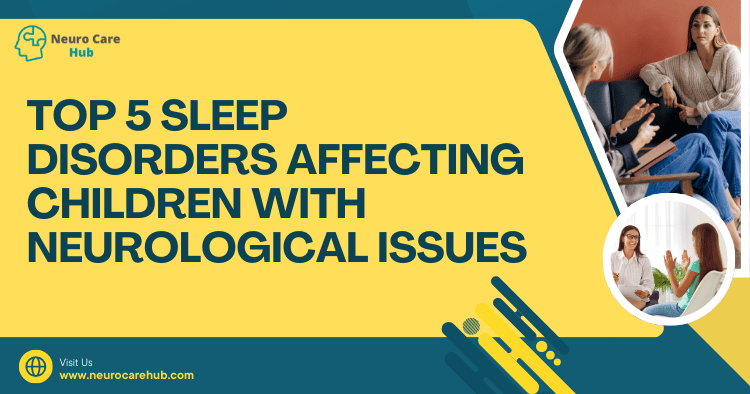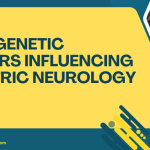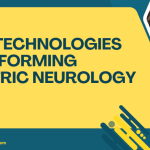Table of Contents
- Understanding Sleep Disorders
- 1. Insomnia
- 2. Night Terrors
- 3. Sleep Apnea
- 4. Restless Legs Syndrome
- 5. Circadian Rhythm Disorders
- FAQs
- Conclusion
Understanding Sleep Disorders
Sleep is crucial for every child, especially for those with neurological issues. Sleep disorders can further complicate their health, affecting their behavior, mood, and overall quality of life. In this article, we will explore the top five sleep disorders that commonly affect children with neurological issues, drawing from the latest insights into neuro care and pediatric health.
What Are Sleep Disorders?
Sleep disorders are conditions that disrupt normal sleep patterns, making it difficult for children to fall asleep, stay asleep, or achieve restful sleep. These disorders can stem from various factors, including neurological conditions, which may lead to more severe implications.
1. Insomnia
Overview
Insomnia is one of the most common sleep disorders in children, characterized by difficulty falling or staying asleep. Children with neurological issues may experience heightened anxiety or stress, which can exacerbate insomnia.
Symptoms
- Difficulty falling asleep
- Frequent night awakenings
- Early morning awakenings
- Daytime fatigue or irritability
Causes
Neurological conditions such as epilepsy or cerebral palsy can contribute to insomnia due to pain, discomfort, or anxiety.
Treatment
- Behavioral Therapy: Cognitive Behavioral Therapy (CBT) can help manage insomnia by changing negative sleep-related thoughts.
- Sleep Hygiene: Establishing a consistent bedtime routine and a sleep-friendly environment can improve sleep quality.
For more information on insomnia, visit American Academy of Sleep Medicine.
2. Night Terrors
Overview
Night terrors are episodes of screaming, intense fear, and flailing while still asleep. They usually occur during the non-REM sleep phase and are more common in children with neurological disorders.
Symptoms
- Sudden awakening with a scream
- Confusion and disorientation
- Inability to recall the episode afterward
Causes
Night terrors may be triggered by stress, fatigue, or changes in routine, which can be particularly impactful for children with neurological conditions.
Treatment
- Establish a Routine: A calming bedtime routine can help reduce the frequency of night terrors.
- Scheduled Awakenings: Gently waking the child before the episode typically occurs can help break the cycle.
For more insights, check out the National Sleep Foundation.
3. Sleep Apnea
Overview
Sleep apnea is a serious condition where breathing repeatedly stops and starts during sleep. It can lead to daytime drowsiness and has been linked to various neurological issues.
Symptoms
- Loud snoring
- Pauses in breathing during sleep
- Gasping or choking sensations
- Excessive daytime sleepiness
Causes
For children with neurological problems, factors such as obesity, enlarged tonsils, or neurological control of breathing can contribute to sleep apnea.
Treatment
- Continuous Positive Airway Pressure (CPAP): This device can help keep airways open during sleep.
- Surgery: In some cases, surgical removal of tonsils or adenoids may be necessary.
Learn more about sleep apnea from Mayo Clinic.
4. Restless Legs Syndrome
Overview
Restless Legs Syndrome (RLS) is a condition characterized by an uncontrollable urge to move the legs, often accompanied by uncomfortable sensations. It can significantly affect a child’s ability to fall asleep.
Symptoms
- Unpleasant sensations in the legs
- Urge to move the legs, especially at night
- Difficulty falling asleep due to discomfort
Causes
RLS can be exacerbated by neurological disorders, iron deficiency, or certain medications.
Treatment
- Lifestyle Changes: Regular exercise and a healthy diet can alleviate symptoms.
- Medication: In some cases, doctors may prescribe medications to help manage RLS.
For further reading, check NIH National Institute of Neurological Disorders and Stroke.
5. Circadian Rhythm Disorders
Overview
Circadian rhythm disorders occur when a child’s internal clock is out of sync with the external environment, leading to sleep disturbances. This is especially prevalent in children with neurological issues.
Symptoms
- Difficulty falling asleep at the desired time
- Excessive daytime sleepiness
- Irregular sleep patterns
Causes
Factors like sensory processing issues common in neurological disorders can disrupt the natural sleep-wake cycle.
Treatment
- Light Therapy: Exposure to bright light at specific times can help reset the internal clock.
- Chronotherapy: Gradual adjustments to sleep schedules can help realign circadian rhythms.
For more details, visit Sleep Research Society.
FAQs
What should I do if I suspect my child has a sleep disorder?
If you believe your child is experiencing sleep issues, consult a pediatrician or a sleep specialist. They can provide a proper diagnosis and treatment plan.
Are sleep disorders common in children with neurological issues?
Yes, children with neurological disorders are more likely to experience sleep disturbances due to underlying conditions affecting their sleep.
Can sleep disorders affect my child’s behavior?
Absolutely. Poor sleep can lead to irritability, hyperactivity, and difficulty concentrating, impacting overall development and well-being.
Conclusion
Sleep is vital for all children, but for those with neurological issues, it can be a challenging endeavor. Understanding these sleep disorders is the first step toward helping your child achieve the restful sleep they need. If you suspect your child is experiencing any of these issues, don’t hesitate to reach out to a healthcare provider for support.
Also, explore more about how neurological conditions can affect sleep and overall health by visiting Top 5 Essential Insights on Neuro Care You Need to Know and Top 5 Reasons Neuro Care is Essential in Modern Medicine.
Sleep well, and remember, you’re not alone in this journey!






